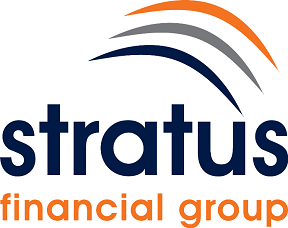Failing to keep accurate records of your executive share scheme (ESS) shares could see you paying way too much tax.
It is important to understand that as a recipient of shares or options under an executive/employee share scheme, you are responsible for understanding and properly managing the tax implications. Failure to do so can result in incorrect management of your tax affairs – with unwanted consequences. Read on to find out how to avoid expensive mistakes when it comes to your ESS and tax.
Tax management is an important matter that affects all executives and employees on an ESS plan as well as those considering ESS as part of an employment offer. The matter is also highly relevant for those of you with entitlements that have vested. If and when you choose to sell them, you will need to know the tax implications.
The manner in which employee share scheme entitlements are taxed is complex and widely misunderstood. The complexity arises from the interdependence among share attributes, taxing points, vesting dates and tax deferment periods that range from 5 to 15 years. It is up to you to understand which attributes are specific to your scheme and how those attributes affect your personal tax circumstances.
If you are unable to keep your accountant accurately informed about your shares and options, you may end up paying tax at the wrong time; using the wrong value to calculate your assessable amount; paying tax when you don’t need to; and/or paying tax more than once. An ATO audit may also mean facing a significant fine for an error that you were not aware of.
The most efficient way to manage your shares is to keep your accountant informed of all entitlements when they are awarded, all vesting points and any disposals. You should retain all records including the date of grant of your shares or options, the vesting dates, any deferment period, the point at which you elect to pay tax, the cost base and correct information and supporting documentation around your decision to keep or sell your entitlements.
Since 1 July 2009, employers have been required to include the assessable amounts for the shares in an employee’s ESS on their PAYG Summary. This is helpful, but you still need to be able to tell your accountant categorically whether or not you have already paid tax on the shares (which you may have done in the year of issue), to avoid paying tax again.
From 1 July 2015, the maximum deferment period was extended from 5 years to 15. The fact that you may have different deferment periods for different issues of ESS shares makes it all the more important that you carefully record any decision to defer taxing point(s).
The complexity involved in managing your tax position as a recipient of ESS shares can be very difficult to manage given the demands of your professional/executive responsibilities in mining and resources. It is for this reason that I encourage you to seek advice from a tax specialist with experience in ESS. In addition to bringing peace of mind, this will enable you to make the most of your ESS when building wealth and financial freedom for yourself and your family.
If we can clarify any of the matters outlined here, or if you have any other questions about your ESS, please don’t hesitate to contact me, Brett Cribb, or James Marshall on 61 (0)7 3007 2007 or info@stratusfinancialgroup.com.au
For over 17 years, my team and I have helped mining and resources executives to make the most of their ESS. This includes liaising with their accountant to clarify the details of withholding or hypothetical tax they have paid. In addition to executive share schemes (ESS), we also offer specialised advice for mining and resources executives on overseas assignments; foreign taxation [1] support; negotiating remuneration packages; and wealth creation & personal risk.
[1] We are not licenced tax agents in any country and do not provide specific tax advice. Our services include providing annual tax reporting information on behalf of our clients. This means they are not stuck with the administrative grind of information provision in multiple jurisdictions and do not need to be aware of the tax implications of strategic decisions in a multitude of countries.
Stratus Financial Group helps families, professionals, executives, business owners and retirees manage their complex financial affairs and coordinate their professional advisers.
Stratus Financial Group and its advisers are Authorised Representatives of Fortnum Private Wealth Ltd ABN 54 139 889 535 AFSL 357306. This is general advice only and does not take into account your objectives, financial situation or needs, so you should consider whether the advice is relevant to your personal circumstances. You should also read the relevant Product Disclosure Statements (PDS) before making any financial decisions.







